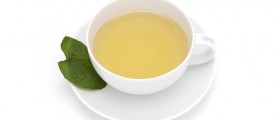
Bronchitis or “chest cold” is one of the common illnesses, especially in winter. It usually happens after a common cold or some other respiratory infection, like patients experience coughing and chest congestion. Symptoms are not severe, but may affect your sleeping and work. Staying at home while the chest cold lasts is one of the best things you can do for yourself during that time. There are also some valuable home remedies, useful for chest cold.
Ease the Breathing
Cough is one of the most annoying symptoms of chest cold, but it can be managed with some honey. Take a tablespoon of honey before bedtime or use honey to sweeten your tea. You can also solve some honey in a glass of water and drink it to relieve the coughing. Honey has been used for centuries to ease all kinds of respiratory infections, and some recent studies confirmed that this natural product works similar or even better than OTC (over the counter) cough medications. Well, if you prefer medications, you can always use dextromethomorphan or Delsym cough syrups.
Expectorant medications can be very useful, because they lubricate your respiratory tract and help you clearing your lungs. Remember to take these drugs with plenty of water, to aid lubrication. Guaifenesin drugs, such as Mucinex and Robitussin are proven to be very helpful, and many pharmacists recommend them.
Steamy baths or hot showers can also help you to relieve the cough and breathe more easily. Warm mist humidifiers also have the same effect to your breathing, but make sure that they are clean and that filters are working properly.
Drink More Fluids
When you’re not feeling well, always remember to drink plenty of water, juices, teas and broths. It will certainly help you loosen the mucus, helping you breathe more easily. Caffeinated drinks and alcohol are not useful at all, but good old chicken soup will be helpful.
Help Your Immune System
Vitamin C is one of the best immune boosters that exist. It can help you fight against all health treats, including bacteria and viruses. At the same time, vitamin C has anti-histamine and anti-inflammatory properties, also beneficial for people suffering from chest cold. The suggestion is to use plenty of vitamin C, and some recommend up to 500mg per hour of vitamin C, until you reach bowel tolerance. Although vitamin C is not considered to be harmful, taking so much vitamin C is not a good idea, because it may provoke bloating, gasses and diarrhea. Doctors recommend at least 500mg as the daily dose of this important immune booster.
When Child is Sick
Babies suffering from chest cold will also benefit from moist air. Because they are too small to blow their noses, parents are advised to use saline drops (only type safe for very young children) or bulb syringes. Never smoke in the house where there is a sick child and watch carefully for any new symptoms.
Call the Doctor
If the condition doesn’t improve, and the child develops a fever, phlegm, or the breathing becomes more difficult, it’s time to visit the doctor. Adult patients should follow the same recommendation and consult their doctor if the symptoms persist or the situation worsens.













-Help-Treat-Your-Cold-Or-Flu_f_280x120.jpg)



Your thoughts on this
Loading...